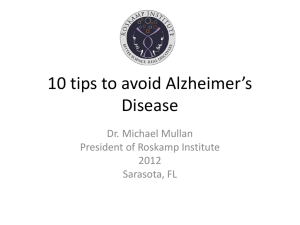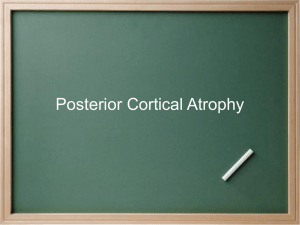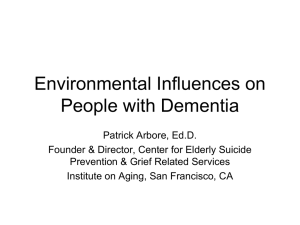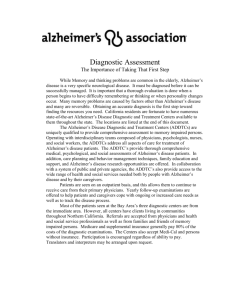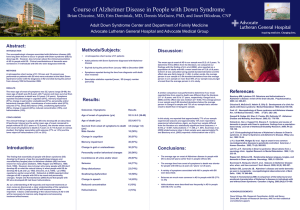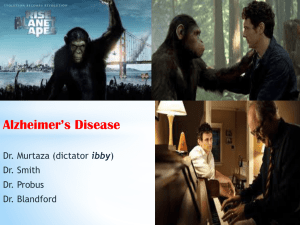Alzheimer`s Disease and Down Syndrome – Pathways of Care
advertisement
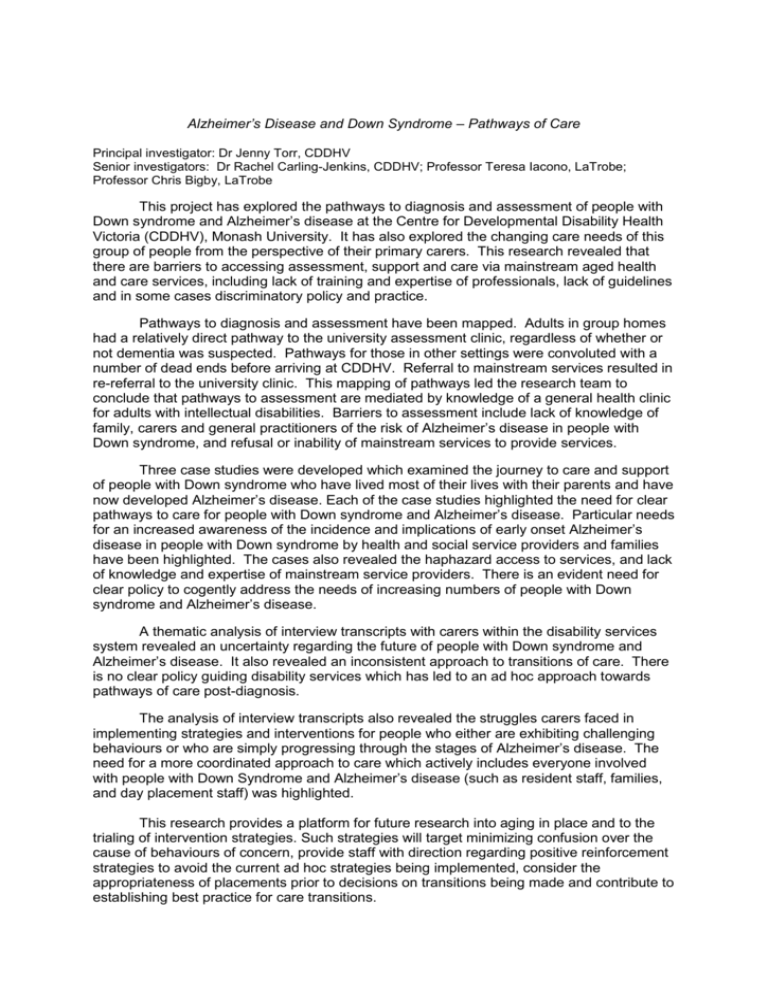
Alzheimer’s Disease and Down Syndrome – Pathways of Care Principal investigator: Dr Jenny Torr, CDDHV Senior investigators: Dr Rachel Carling-Jenkins, CDDHV; Professor Teresa Iacono, LaTrobe; Professor Chris Bigby, LaTrobe This project has explored the pathways to diagnosis and assessment of people with Down syndrome and Alzheimer’s disease at the Centre for Developmental Disability Health Victoria (CDDHV), Monash University. It has also explored the changing care needs of this group of people from the perspective of their primary carers. This research revealed that there are barriers to accessing assessment, support and care via mainstream aged health and care services, including lack of training and expertise of professionals, lack of guidelines and in some cases discriminatory policy and practice. Pathways to diagnosis and assessment have been mapped. Adults in group homes had a relatively direct pathway to the university assessment clinic, regardless of whether or not dementia was suspected. Pathways for those in other settings were convoluted with a number of dead ends before arriving at CDDHV. Referral to mainstream services resulted in re-referral to the university clinic. This mapping of pathways led the research team to conclude that pathways to assessment are mediated by knowledge of a general health clinic for adults with intellectual disabilities. Barriers to assessment include lack of knowledge of family, carers and general practitioners of the risk of Alzheimer’s disease in people with Down syndrome, and refusal or inability of mainstream services to provide services. Three case studies were developed which examined the journey to care and support of people with Down syndrome who have lived most of their lives with their parents and have now developed Alzheimer’s disease. Each of the case studies highlighted the need for clear pathways to care for people with Down syndrome and Alzheimer’s disease. Particular needs for an increased awareness of the incidence and implications of early onset Alzheimer’s disease in people with Down syndrome by health and social service providers and families have been highlighted. The cases also revealed the haphazard access to services, and lack of knowledge and expertise of mainstream service providers. There is an evident need for clear policy to cogently address the needs of increasing numbers of people with Down syndrome and Alzheimer’s disease. A thematic analysis of interview transcripts with carers within the disability services system revealed an uncertainty regarding the future of people with Down syndrome and Alzheimer’s disease. It also revealed an inconsistent approach to transitions of care. There is no clear policy guiding disability services which has led to an ad hoc approach towards pathways of care post-diagnosis. The analysis of interview transcripts also revealed the struggles carers faced in implementing strategies and interventions for people who either are exhibiting challenging behaviours or who are simply progressing through the stages of Alzheimer’s disease. The need for a more coordinated approach to care which actively includes everyone involved with people with Down Syndrome and Alzheimer’s disease (such as resident staff, families, and day placement staff) was highlighted. This research provides a platform for future research into aging in place and to the trialing of intervention strategies. Such strategies will target minimizing confusion over the cause of behaviours of concern, provide staff with direction regarding positive reinforcement strategies to avoid the current ad hoc strategies being implemented, consider the appropriateness of placements prior to decisions on transitions being made and contribute to establishing best practice for care transitions.
